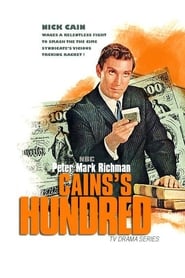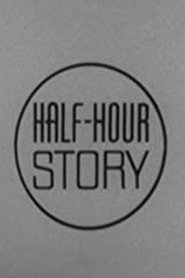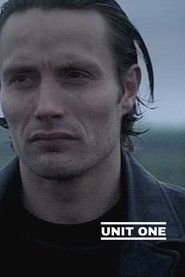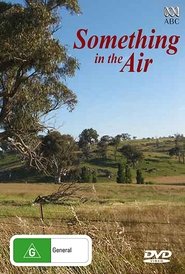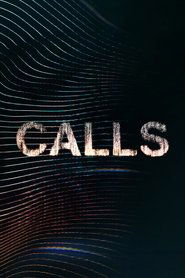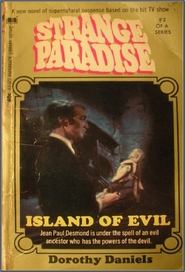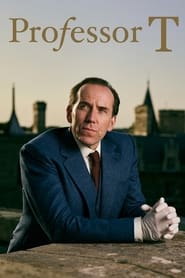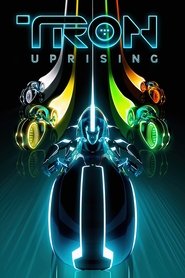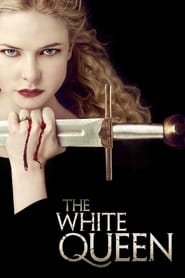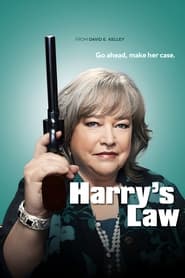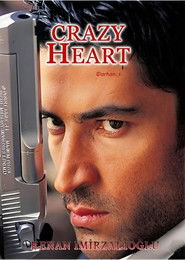Popular Drama TV Series - Page 177
-
Cain's Hundred
1961
Cain's Hundred
1961
star 4.7A former underworld lawyer goes to work for the Federal Government, determined to bring 100 top criminals to justice. -
Intersection
2016
Intersection
2016
star 5.9Naz who is a paediatrician loses her baby during pregnancy. Even though her husband wants another baby, she refuses to go through the same thing all over again. She goes to Italy for a conference and meets Ali Nejat there. -
Half Hour Story
1967
Half Hour Story
1967
star 718 short plays written especially for TV, an opportunity for up-and-coming directors such as floor manager Alan Clarke, who ended up doing 10 of the episodes. Some top ranking performers were attracted to the series. -
The Truth About Love
2025
The Truth About Love
2025
Zhou Nan, heir to the Zhou Group, faces a funding crisis until investor Mo Fei unexpectedly joins the family. To his surprise, she looks exactly like his former love, Shen Mo. While suspicious of her motives, their growing interactions stir memories of the past, leading to the uncovering of a long-buried truth from seven years ago. -
Watanuki's House
2019
Watanuki's House
2019
star 10In the district of Monzen-Nakacho of Koutou in Tokyo, three sisters live in one house. The Watanuki sisters had a life of hardships, a life without a mother, who died in their early childhood and now without a father, who died just a year ago. Now alone and becoming the inheritors of the Watanuki house, the sisters have to endure several situations in their everyday lives; whether those are happy, sad or special, they will test the sisters' bonds as a family. -
Unit One
2000
Unit One
2000
star 7.1Rejseholdet is a Danish television crime series starring Charlotte Fich, Mads Mikkelsen and Lars Brygmann. Produced by Danmarks Radio, the program aired 32 episodes spanning four seasons from 2000 to 2004. Each episode revolved around an elite mobile police task force called "Unit One" that travels around Denmark helping local police solve crimes. Cases portrayed in the show were loosely based upon actual incidents of sensational crimes such as murders, kidnappings, cross-border sex traffic and child pornography. Rejseholdet won the 2002 International Emmy Award for best drama series. -
Something in the Air
2000
Something in the Air
2000
star 2Something in the Air was an Australian television soap opera transmitted by the Australian Broadcasting Corporation between 2000 and 2002. It was one of the first programs in Australia that was filmed in widescreen. It won the AACTA Award for Best Television Drama Series in 2001. -
Calls
2021
Calls
2021
star 7Interconnected phone conversations chronicle the mysterious story of a group of strangers whose lives are thrown into disarray in the lead-up to an apocalyptic event. -
Strange Paradise
1969
Strange Paradise
1969
star 6.3Strange Paradise is a Canadian occult / supernatural soap opera of 195 episodes, initially launched in syndication in the United States on September 8, 1969, and later broadcast on CBC Television from October 20, 1969 to July 22, 1970. The production was the brainchild of producer Steve Krantz, in an attempt to capitalize on the phenomenal success of ABC's daytime serial Dark Shadows. To develop this series, Krantz hired actor-writer Ian Martin and veteran TV and radio producer Jerry Layton, both of who would be given screen credit for the creation of Strange Paradise. With the CBC and American broadcasters Metromedia and Kaiser Broadcasting handling distribution and co-production, the series was produced in Ottawa at CTV affiliate CJOH-TV and aired for 39 weeks, presenting three separate 13-week story arcs. -
Voice
2017
Voice
2017
star 7.3It's 3 minutes for hearers, but a life for the callers. A crime thriller chasing even the slightest sounds to rescue people's lives calling for urgent help. -
Professor T
2021
Professor T
2021
star 7.3Professor Jasper Tempest, a genius Cambridge University criminologist with OCD and an overbearing mother, advises the police. British version of the Belgian crime drama of the same name. -
太那个了吧
2015
太那个了吧
2015
-
TRON: Uprising
2012
TRON: Uprising
2012
star 7.6Some time between 'Tron' and 'Tron: Legacy', a young program named Beck becomes the skillful leader of a revolution inside the computer world of The Grid. -
Tomorrow
2022
Tomorrow
2022
star 8.4Made half-human and half-spirit by accident, a young man is employed by a company of grim reapers in the underworld to carry out special missions. -
The White Queen
2013
The White Queen
2013
star 7.3Set against the backdrop of the Wars of the Roses, the series is the story of the women caught up in the protracted conflict for the throne of England. -
Kamen Rider Gavv
2024
Kamen Rider Gavv
2024
star 8.2Granutes are intelligent lifeforms that operate secretly in the human world. They kidnap people for the sake of "Black Market Sweets." As people are attacked one after another by the Granutes, Shoma, a young man from another world, rises up to save the people. Together with the Gochizo, small monsters born from eating sweets, he transforms into Kamen Rider Gavv with a mouth-like belt! -
State of Divinity
1996
State of Divinity
1996
star 8.2Ling-wu Chung, a senior student of the Wah Mount Sect, was not at all brilliant when he joined the Sect, but was soon taught to master the sword by a legendary swordsman Yeung. Chung’s master, Kwan, resented this and drove Chung away. In order to get hold of “Kwai Fa Bo Din”, the book on the most powerful martial art, Kwan diverts attention by secretly creating troubles everywhere. Chung, on the other hand, becomes the leader of the Hang Mount Sect by chance and falls in love with Kwan's daughter. When she betrays him, he turns to the daughter of the Devil Sect leader, and thus causes a love triangle between them. -
Harry's Law
2011
Harry's Law
2011
star 7.3Harriet, Matthew and Malcolm couldn't be any more different, but when they cross paths, they realize they're all looking for a fresh start. The most unlikely of people are starting a law practice in the most unlikely of places -- a rundown shoe store. -
Humse Hai Liife
2011
Humse Hai Liife
2011
Humse Hai Liife is an Indian soap opera aimed at a young audience, which aired on Channel V India. The show premiered on September 5, 2011 and ended on November 30, 2012. The narrative of the show followed a young girl named Sia Dhillon as she struggled with life and friends while pursuing her dream of becoming a boxer. The story is also about Sia's relationship with the characters of Raghav, Arjun, Kabir and others at the Elite school. It ran for 260 episodes, 4 days a week from Monday to Thursday at 7.30pm, from Sep 5, 2011 to Nov 30,2012. Re-runs of this show are coming from 20th May 2013. -
Crazy Heart
1999
Crazy Heart
1999
star 7.4Crazy Heart is a Turkish action, drama and political television series directed by Osman Sinav. The series, which started on Show TV on October 5, 1998, was released on the fourth season, the last season of the ATV. Crazy Heart , composed of 113 episodes published in 4 seasons, ended on June 24, 2002.
 Netflix
Netflix
 Amazon Prime Video
Amazon Prime Video
 Apple iTunes
Apple iTunes
 Apple TV Plus
Apple TV Plus
 Disney Plus
Disney Plus
 Google Play Movies
Google Play Movies
 Paramount Plus
Paramount Plus
 Hulu
Hulu
 HBO Max
HBO Max
 YouTube
YouTube
 fuboTV
fuboTV
 Peacock
Peacock
 Peacock Premium
Peacock Premium
 Amazon Video
Amazon Video
 The Roku Channel
The Roku Channel
 AMC+
AMC+
 Kocowa
Kocowa
 Hoopla
Hoopla
 The CW
The CW
 Vudu
Vudu
 Starz
Starz
 Showtime
Showtime
 PBS
PBS
 Pantaflix
Pantaflix
 FXNow
FXNow
 Tubi TV
Tubi TV
 Kanopy
Kanopy
 Comedy Central
Comedy Central
 Crunchyroll
Crunchyroll
 Microsoft Store
Microsoft Store
 Redbox
Redbox
 Sun Nxt
Sun Nxt
 ABC
ABC
 DIRECTV
DIRECTV
 Crackle
Crackle
 Fandor
Fandor
 Plex
Plex
